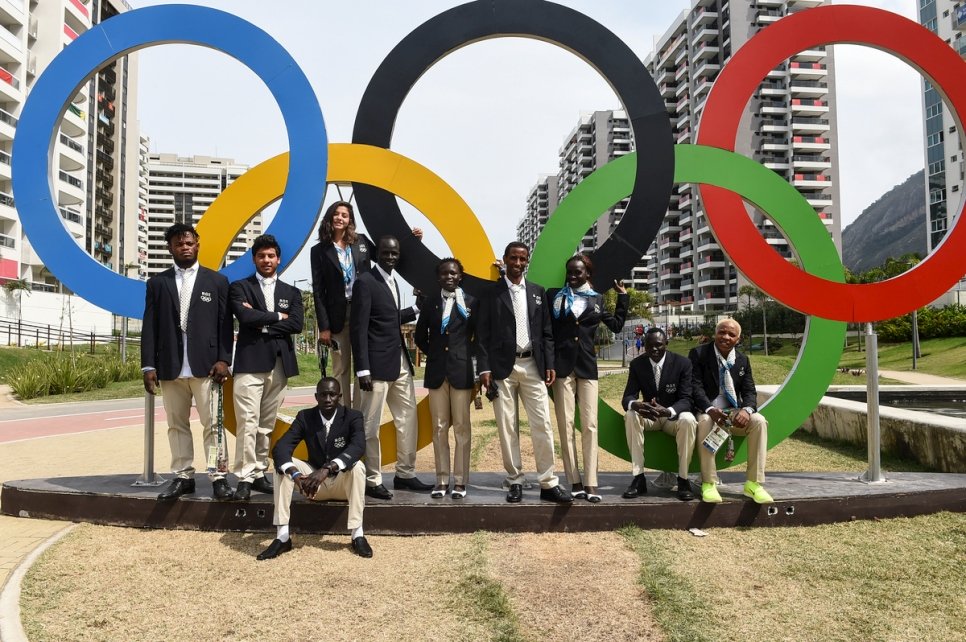International Olympic Committee
Sport for Protection
One aspect of our work with the IOC focuses on participation in sport as a way to protect forcibly displaced children and youth from risks such as abuse, exploitation, neglect and violence. Together with an NGO partner, Terres des hommes, UNHCR and the IOC have developed a toolkit to help deliver high-quality ‘Sport for Protection’ programmes. Since 2014, these efforts have taken root in Jordan, Ethiopia, Colombia, Rwanda, Mexico and the Democratic Republic of the Congo, with other countries in the pipeline.
Olympic Refuge Foundation
In 2017, the IOC launched the Olympic Refuge Foundation to help create safe, accessible, organized ‘Sport for Protection’ projects that serve displaced, host and other vulnerable communities and aim to leave a sustainable legacy. These efforts will support UNHCR’s work in locations where there are a significant number of forcibly displaced young people. The Foundation is chaired by IOC President Thomas Bach, with UN High Commissioner for Refugees Filippo Grandi acting as vice-chairman. Pilot projects will start in 2018 in Kenya (Kakuma), Jordan and Turkey, drawing on lessons learned from the past and working with local stakeholders, including government and local authorities, relevant NGOs, UNHCR national offices, National Olympic Committees and the sport sector when possible.
Become the Light
Demonstrating the versatility of the roles that sports partners can play, the IOC worked with UNHCR ahead of the 2018 Olympic Winter Games in PyeongChang to launch a campaign to bring solar lanterns and solar street lights to Mahama camp in northern Rwanda. The camp is home to 55,000 refugees who fled violence in neighbouring Burundi, and the new lighting there will help to ensure a safer environment, make sports more accessible and enable young people to study at home after dark.
Refugee Olympic Team
For the first time ever, a team of refugee athletes competed at the 2016 Summer Games in Rio. The Refugee Olympic Team included two Syrian swimmers, two judokas from the Democratic Republic of the Congo, a marathon runner from Ethiopia, and five middle-distance runners from South Sudan. Two more refugee athletes competed in the subsequent Paralympic games.
Their presence sent an unprecedented message of hope and inclusion to people around the world, showing that refugees are individuals like the rest of us, with dreams, aspirations and sometimes extraordinary skills. As a result of her participation and her passion for the refugee cause, in 2017, Syrian refugee and Olympic athlete Yusra Mardini was appointed as a UNHCR Goodwill Ambassador.
Refugee teams have since participated in the 2017 Asian Indoor and Martial Arts Games in Turkmenistan, the 2017 World Athletics Championships in London and other national, regional and international events.
UNHCR and Olympic Solidarity, which organizes the IOC’s assistance to National Olympic Committees, are continuing to work to identify high-level refugee athletes who can be trained for national and international events in their sport.
“The Refugee Olympic athletes were some of the stars of these Olympic Games… They demonstrated what you can achieve if you want to. They also demonstrated that they are not simply refugees, but that they are human beings.”
Thomas Bach, IOC President
Since 1994, the IOC has provided more than US$5 million in support of UNHCR and has consistently highlighted some of the many positive and remarkable stories of displaced young people’s lives being transformed through sports.

